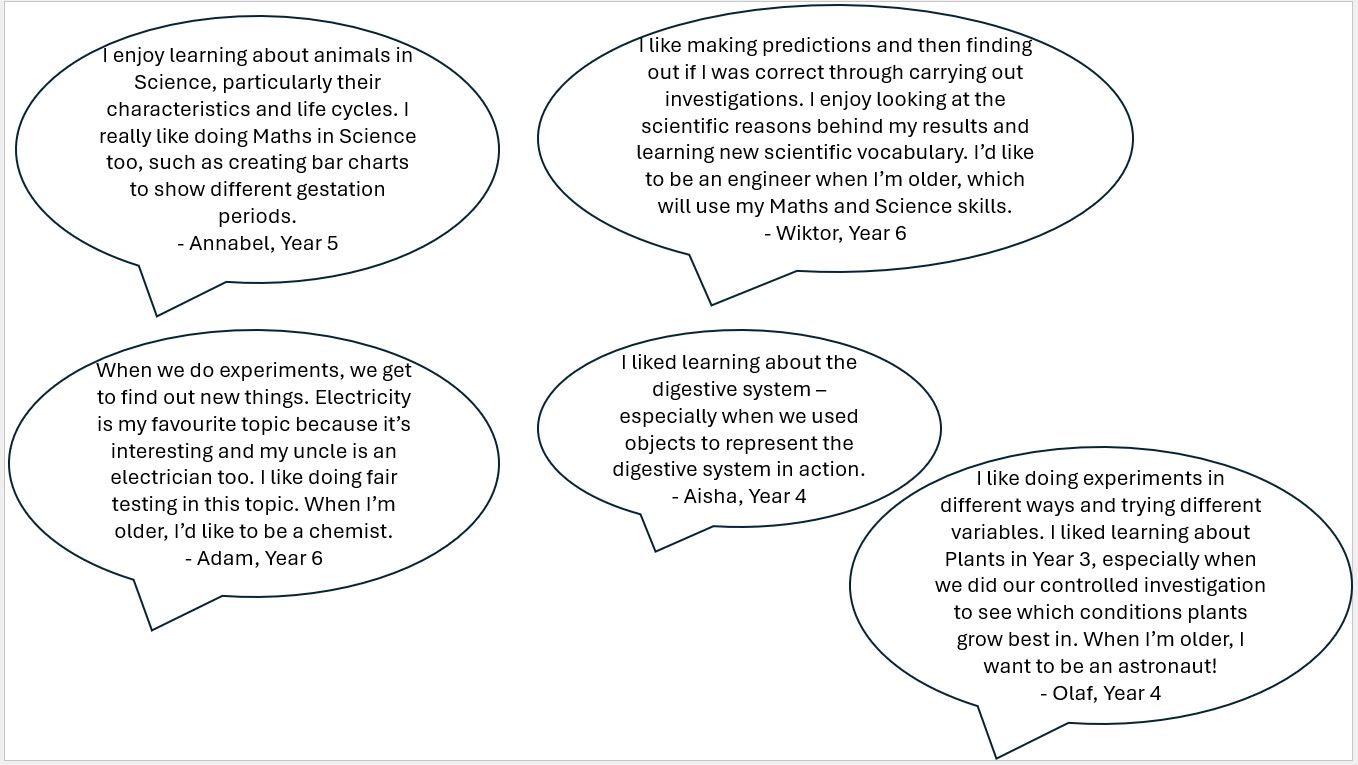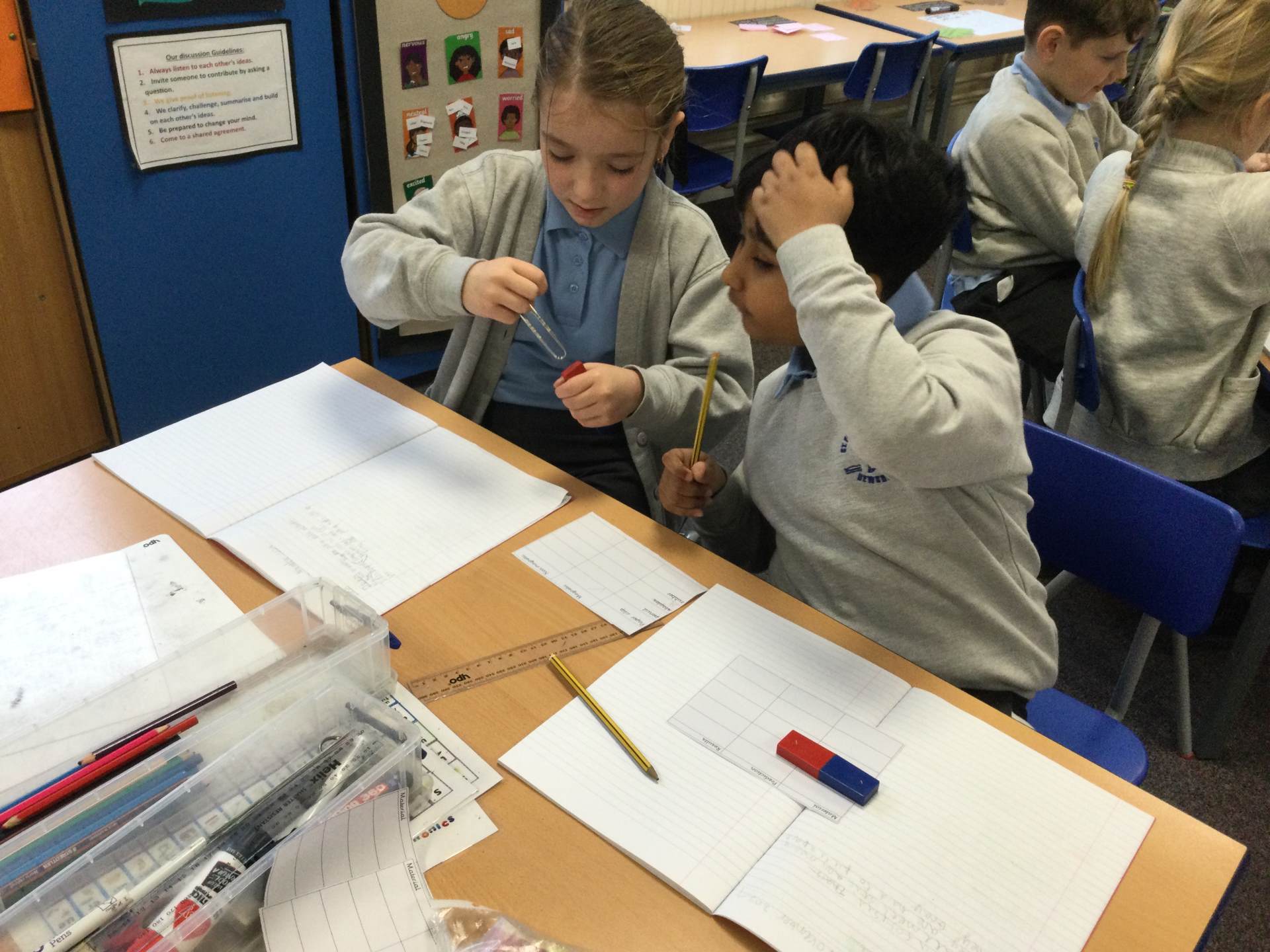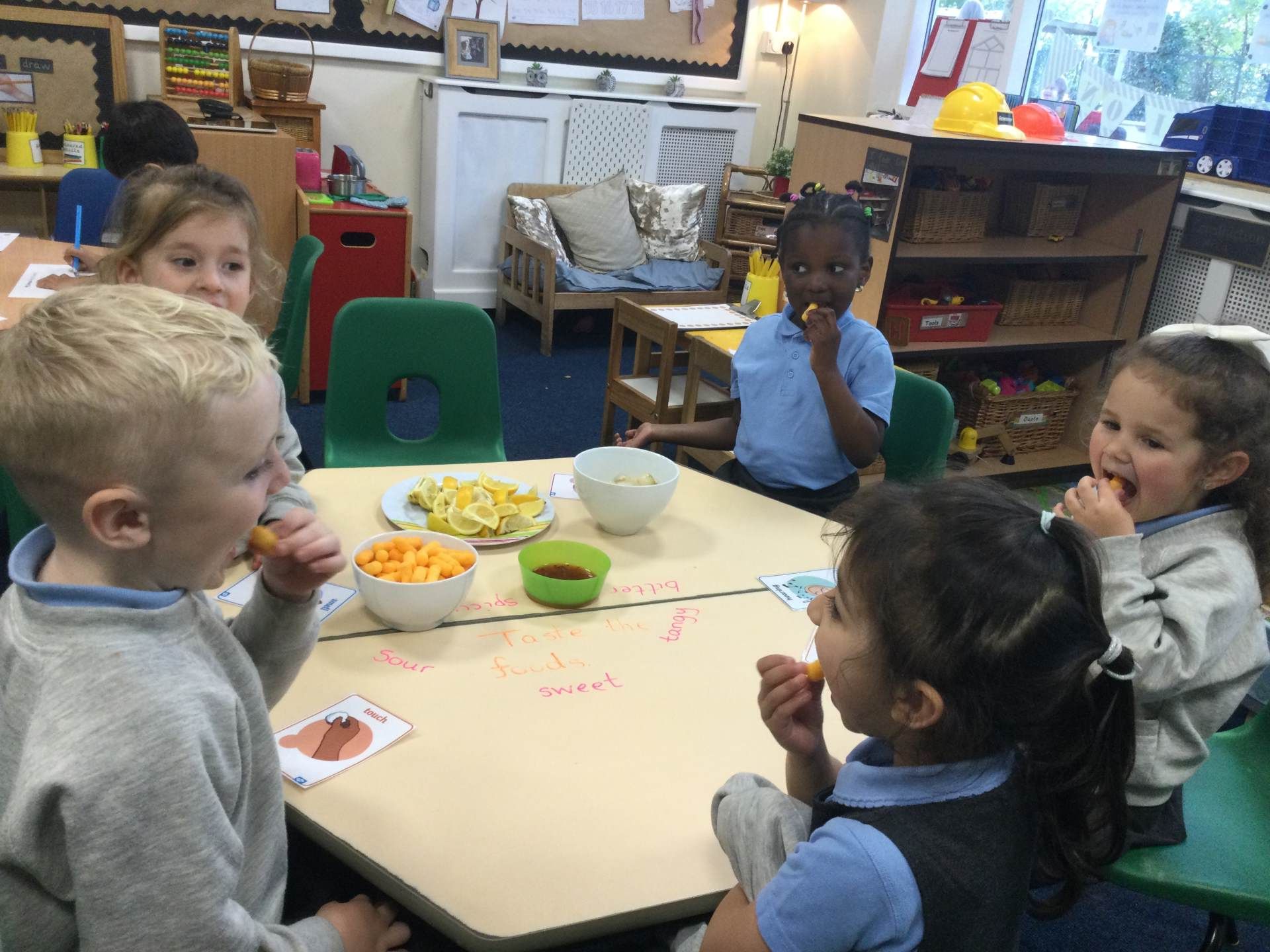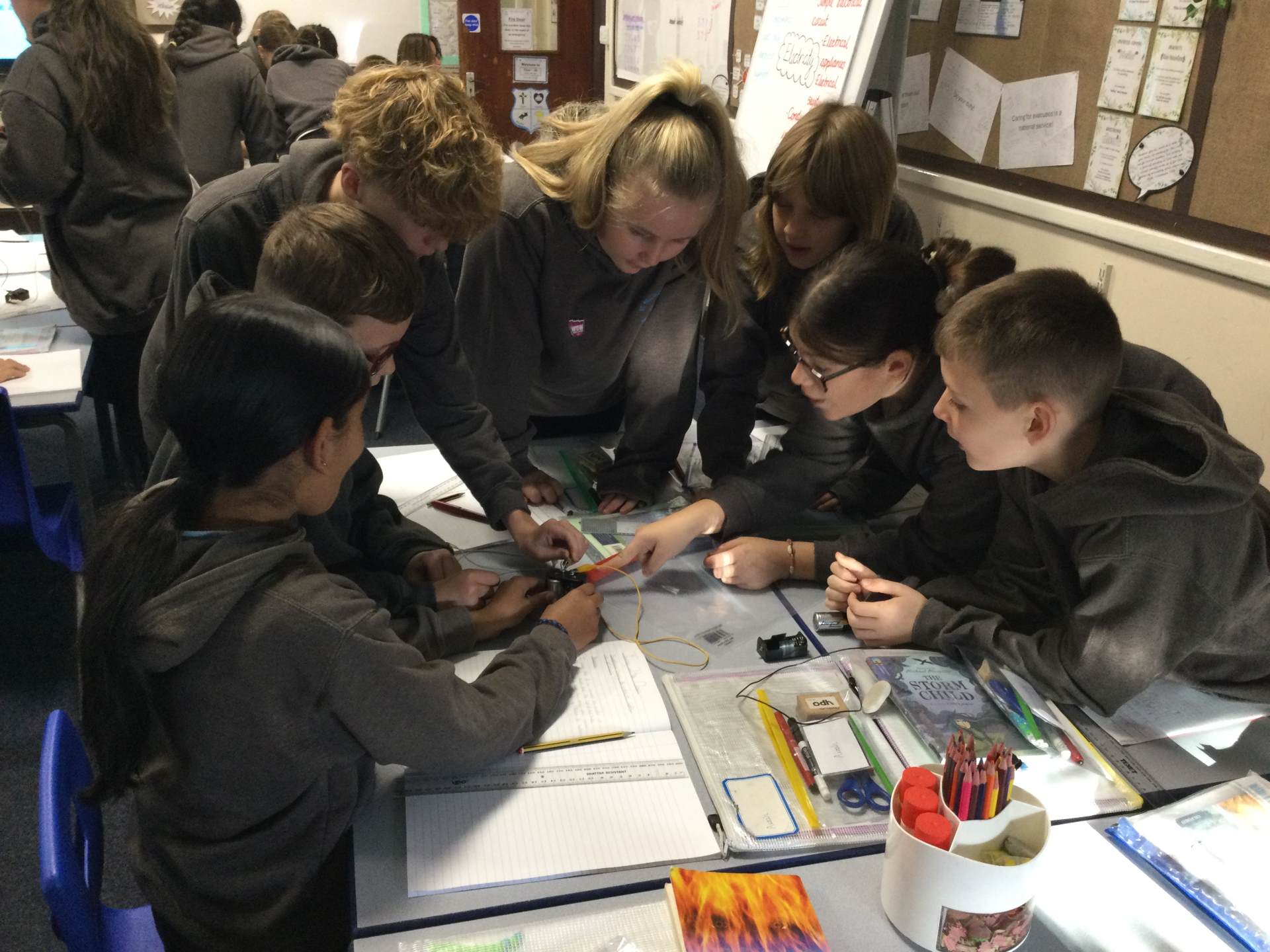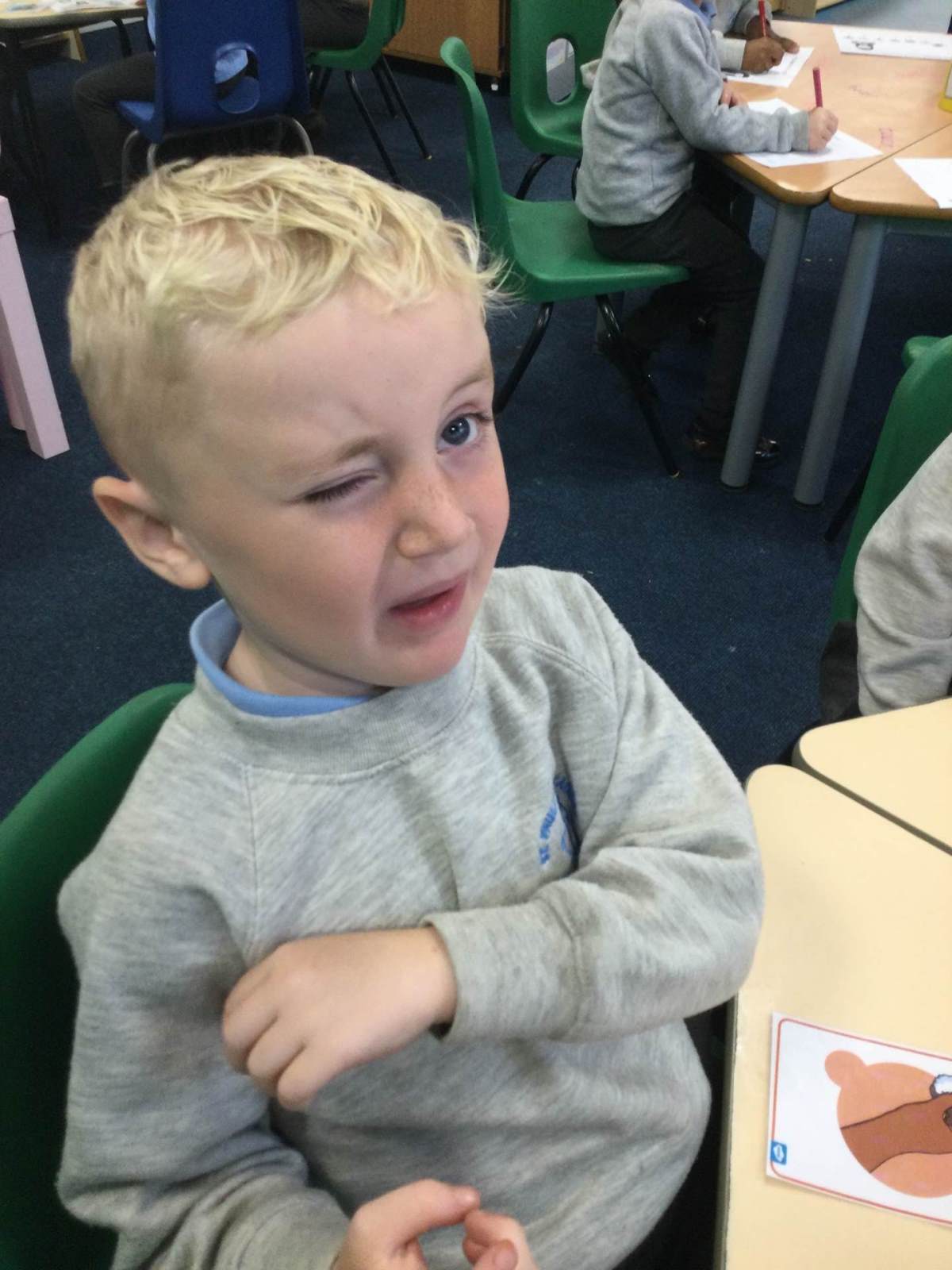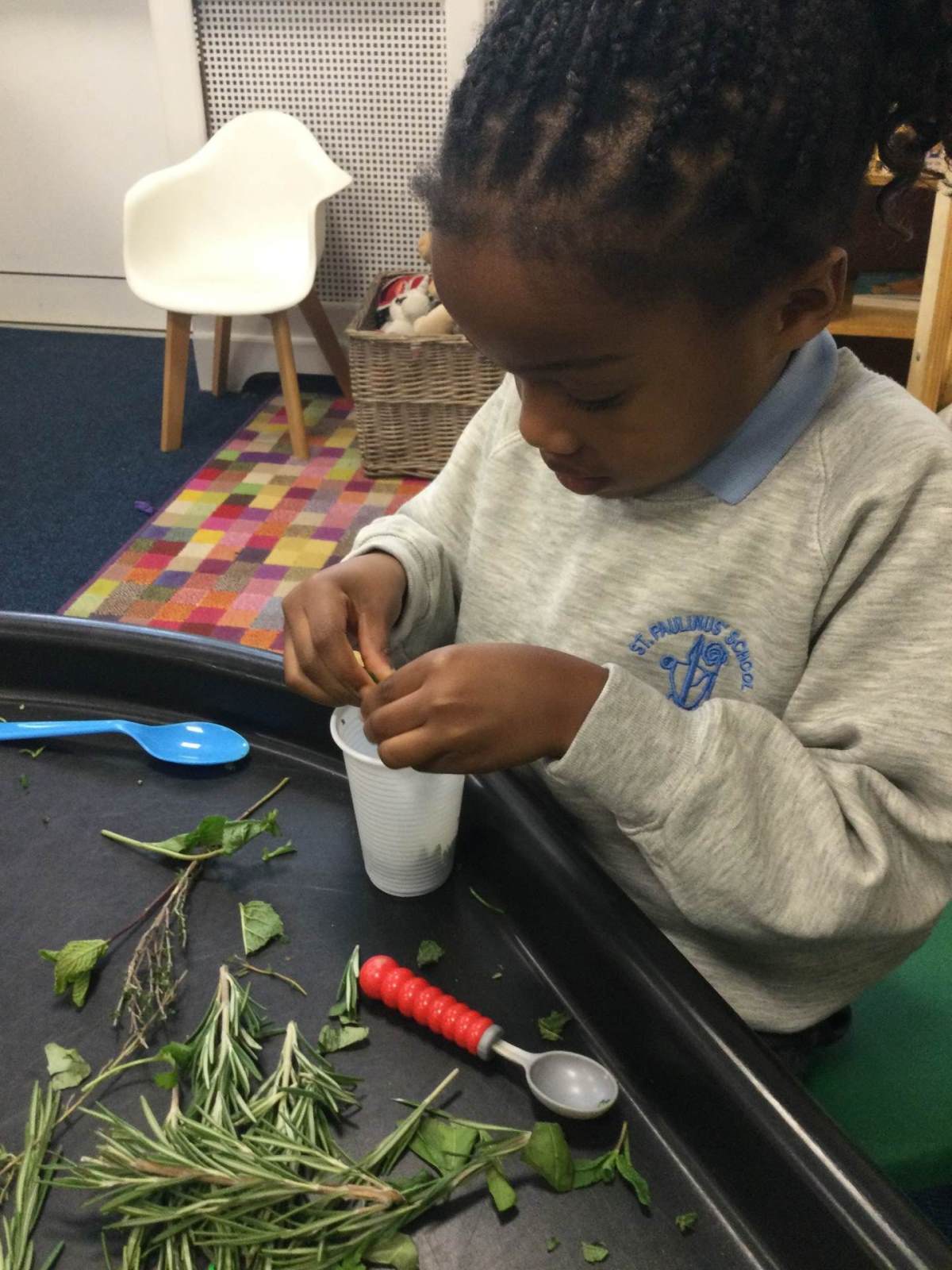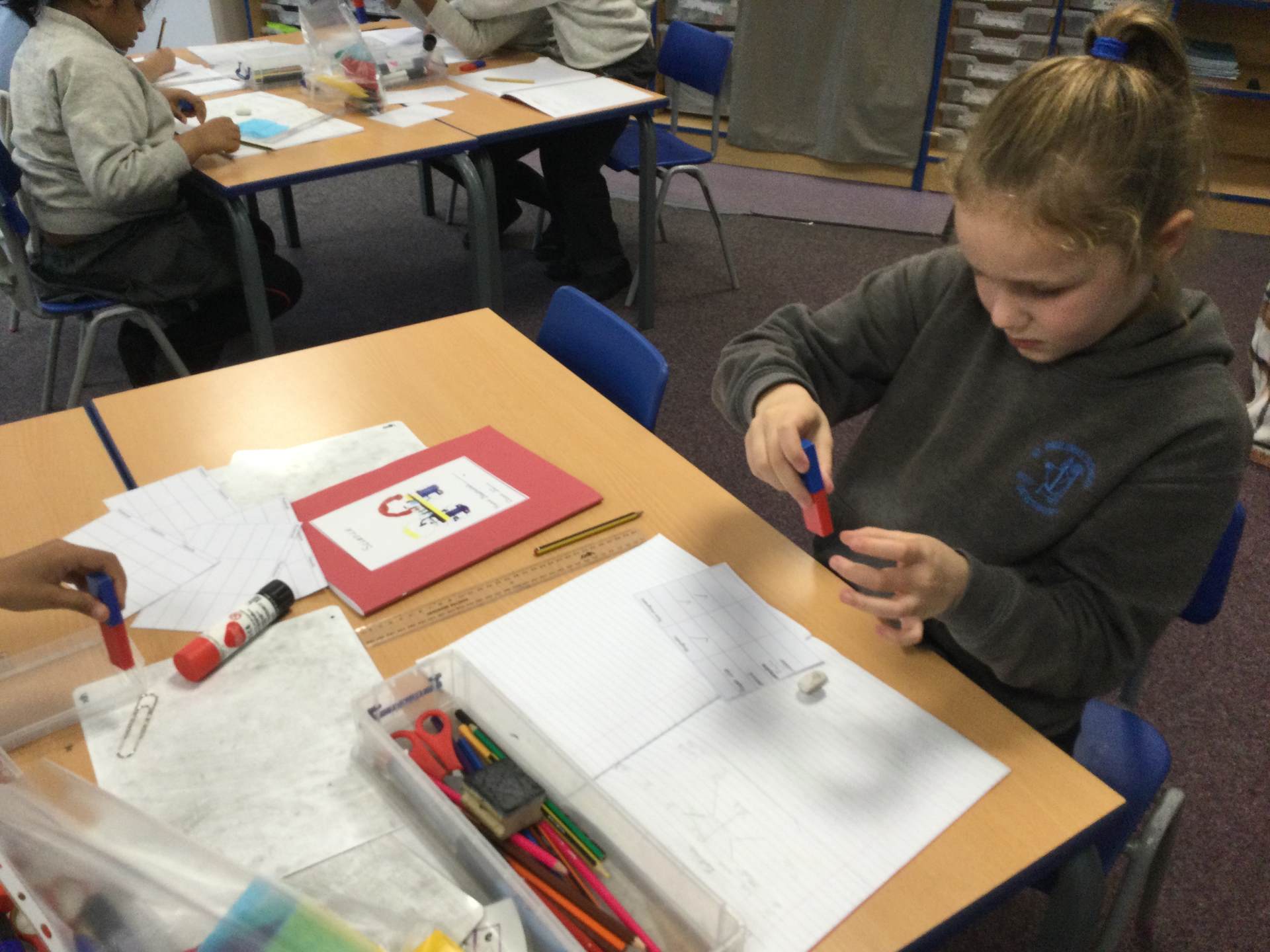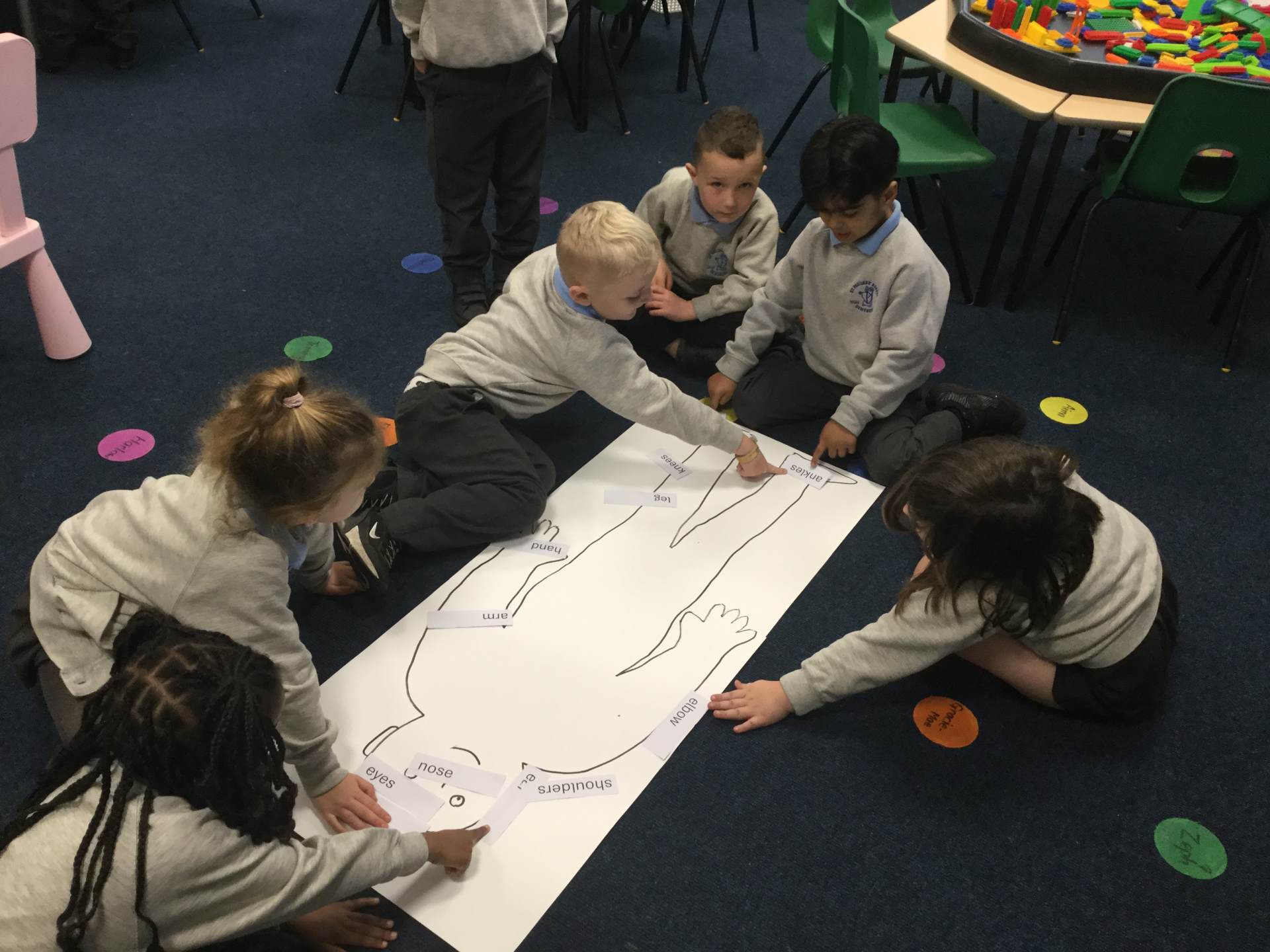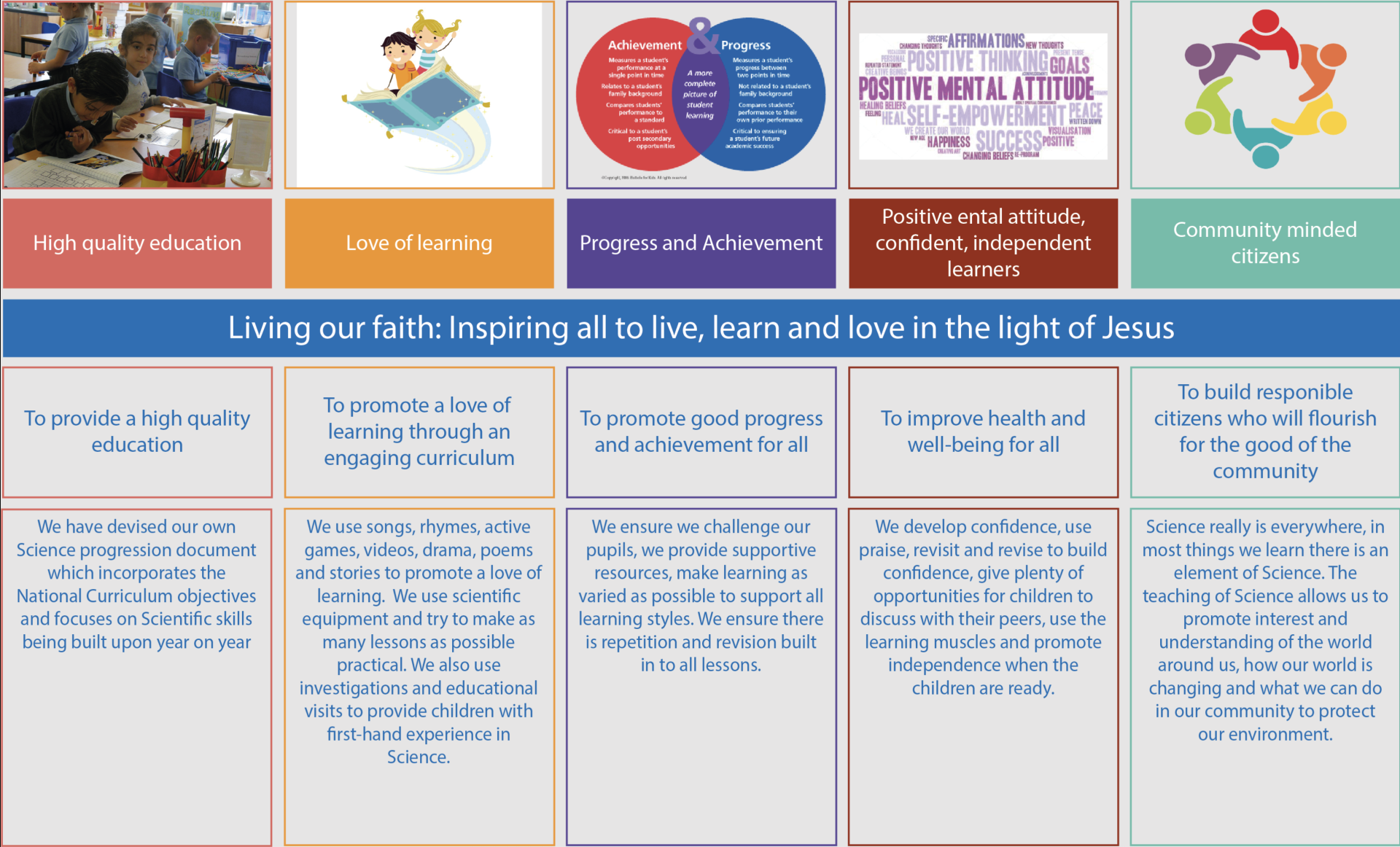St PaulinusCatholic Primary Academy
Inspiring all to live, learn and love in the light of Jesus
We are proud to work with all the Catholic schools across our two local authority areas, particularly as the Trust grows and benefits from the expertise and knowledge that other schools joining in the future will bring.
Visit Us
We believe in the importance of our young scientists acquiring life-long enquiry science skills, which support children in the exploration and understanding of the world they live in, alongside the vast knowledge of the disciplines of biology, physics and chemistry. They will develop an understanding of the vital role that major scientific ideas and inspirational scientists have played in society. Throughout their science education, all our children will be prepared for their next stage of science education. Science is taught as a discrete subject, with a focus on substantive knowledge and disciplinary knowledge throughout their time at St Paulinus. The National Curriculum programmes of study and Early Years Foundation Stage framework are fully adhered to and then supplemented with additional knowledge-rich content. This provides a coherent science curriculum that both prepares children extremely well for future learning and gives them the tools to independently investigate and explore the world further. The science curriculum encourages children to be curious about natural phenomena and to be excited by the process of understanding the world around them. We want our children to remember the concepts they learn. Therefore, the curriculum focuses on the sequential development of essential substantive knowledge underpinning biology, chemistry and physics.
Over time, these building blocks of component learning are transformed into a deep understanding of the real world. Each year group deepens their understanding of key concepts, adding new generative knowledge to existing schema. For example, the biology strand of ‘plants’ is revisited multiple times throughout the year groups, with the component learning of basic plant structure in Year 1 and how plants grow in Year 2 transforming into the composite learning of water transportation within plants in Year 3. Procedures and concepts that underpin scientific methods are developed through the systematic focus on disciplinary knowledge. Every unit of work contains opportunities to develop the Working Scientifically skills of asking questions, planning enquiries, observing, measuring, recording, presenting and interpreting results, drawing conclusions, predicting and evaluating, according to the progression in these skills as per the science progression map. Thus, essential science concepts are developed whilst children investigate the world around them. The different approaches to science enquiry, such as fair testing, research and classifying are also systematically developed in the disciplinary knowledge section of the progression map. Each science unit of work is then framed around an enquiry question, ensuring a systematic, contextualised development of both substantive and disciplinary knowledge.
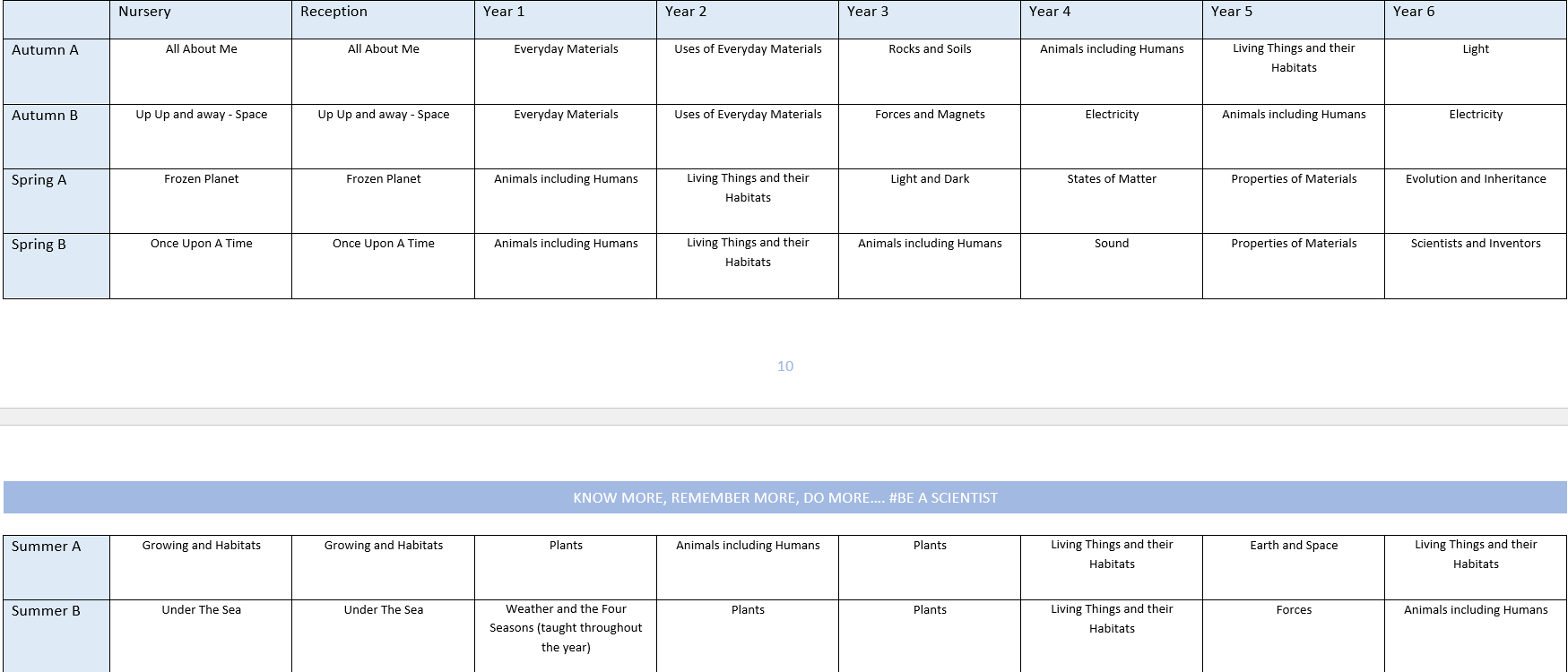
Discrete science lessons are carried out weekly and fulfil the aims set out by the National Curriculum. Children are given the time to explore their ideas through discussion, planning investigations and showing curiosity of how things work in the world around us. The key learning of our science lessons are also influenced by Hamilton’s Science Scheme, which uses hands-on investigative science activities to promote a deep understanding of scientific concepts and help children develop effective methods of scientific enquiry.
The teaching of science begins in the Early Years with Nursery, where children develop a fundamental foundation of core scientific skills, such as asking questions and showing curiosity. Children are given the opportunity to understand the world by using their senses in hands-on exploration of materials, talking about what they see, exploring how things work and beginning to understand key features of the life cycle of a plant and an animal. Children will also develop their understanding of ‘why’ questions, such as “Why do you think the caterpillar got so fat?”
Throughout all year groups, children develop both their substantive knowledge and disciplinary knowledge within science. Disciplinary knowledge enables one to ‘think like a scientist’. Disciplinary knowledge in science includes the Working Scientifically strand of the National Curriculum Programme of Study and the approaches to scientific enquiry as detailed in the ‘aims’ of the National Curriculum. At St Paulinus, we aim to incorporate elements of both substantive and disciplinary knowledge into our lessons.
We set out the Working Scientifically stand of the National Curriculum as ten distinct skills:
The approaches to science enquiry include:
You can see some of the impact of our curriculum in the work at the top of the page. We also have some quotes from our children when asked about Science lessons here at St Paulinus.
